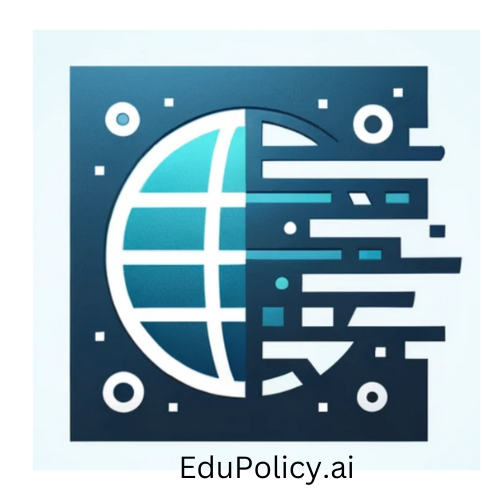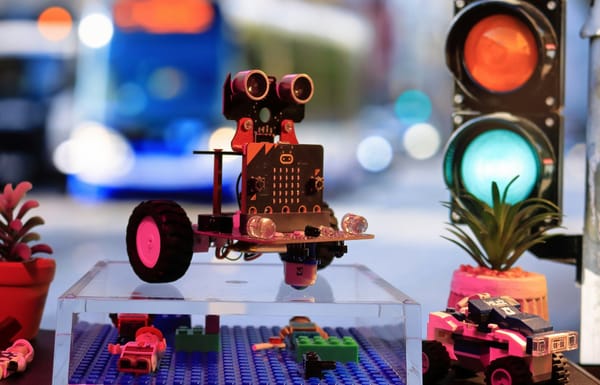The Role of the AI Ethicist:

Guest Author: Gino Galli.
While working in the field of AI there have been many new ideas and concepts that have been uncovered in my search for better understanding. While exploring some of these ideas and concepts I have gleaned valuable insights that I would like to share with readers of the: AI Revolution in Education Blog.
One of my more profound discoveries has been, not so much that AI needs to be used responsibly (we all know this); rather, I pondered the question "who will be guiding us through this journey of AI responsibility." After some contemplation and research, I happened upon the title of: "AI Ethicist" and the rest is history.
The role of the AI Ethicist: Human Values
Unlike the SME, an AI Ethicist is an expert who specializes in the ethical considerations and implications of artificial intelligence.
Ethicist ensures technology is being used in a way that respects human values and social well-being. The AI ethicist also oversees that AI is being developed conscientiously. Depending on the organization and its mission, AI ethicists can be responsible for a variety of functions, but their most important responsibilities include promoting ethical guidelines and policies, risk assessment, collaborating with stakeholders, and corporate responsibility advisement.
A typical task for this type of expert would be to identify potential biases in an LLM (large language model) and collaborate with SMEs to mitigate these risks.
To use an analogy from the Wizard of Oz, much like, Toto, sniffing out the truth behind the Wizard's curtain, subject matter experts, domain experts, and ethicists work quietly behind the scenes, ensuring the quality and accuracy of generative AI. These experts highlight the crucial role of often-unseen contributors in achieving impressive results. While their work may not be noticed, their domain knowledge often provides results that have been proven to be quantifiably precise and accurate.13
Subject Matter & Domain Experts: Semantics
So what exactly are subject matter experts? Are they any different than domain experts? A non-technical subject matter expert (SME) has rich expertise and specialized knowledge in a particular field, industry, or subject area. such as law, construction, healthcare, or history. SMEs are known for their subject mastery and are considered specialists in their respective domains.
In the broader context, pundits like Lakhani contend that the march of progress is inevitable. For non-technical subject matter experts to thrive in a digital environment, they need the support of an organization that has made the transition toward a digital mindset.10 The literature often uses the terms “Domain Expert” and “Subject Matter Expert” interchangeably, but generally tends to associate domain experts as specialists with deep knowledge and experience in areas related to information technology. 11
In Yingqiang Ge’s research, “OpenAGI: When LLM Meets Domain Experts,” the term ‘domain expert’ is more closely aligned with computer science parlance, as Ge explains that a skill is referred to as a “domain expert ‘model’ – a reusable tool, module, network, plugin, or API with a defined function.”12 Since both the ‘domain expert’ and ‘subject matter expert’ terms are used indistinguishably in the literature, this piece will align with the prevailing convention, referring to them as ‘subject matter experts'.
This article to be continued.........
More about Gino can be found on LinkedIn

"Ethicists ensure technology is being used in a way that respects human values and social well-being."
10 Lakhani, Karim. "AI Won’t Replace Humans - But Humans With AI Will Replace Humans Without AI." Harvard Business Review, 4 Aug. 2023
Business Review, 4 Aug. 2023, hbr.org/2023/08/ai-wont-replace-humans-but-humans-with-ai-will-replace-humans-without-ai.
11 Yin, H. "The Importance of Domain Knowledge." Machine Learning Blog | ML@CMU | Carnegie Mellon University, 24 Aug. 2020, https://blog.ml.cmu.edu/2020/08/31/1-domain-knowledge/.
12 Ge, Yingqiang, et al. "OpenAGI: When LLM Meets Domain Experts." Computer Science: Artificial Intelligence, 10 Apr. 2023. Cornell University - ArXiv, https://arxiv.org/abs/2304.04370.
13 Yin, The Importance of Domain Knowledge.





